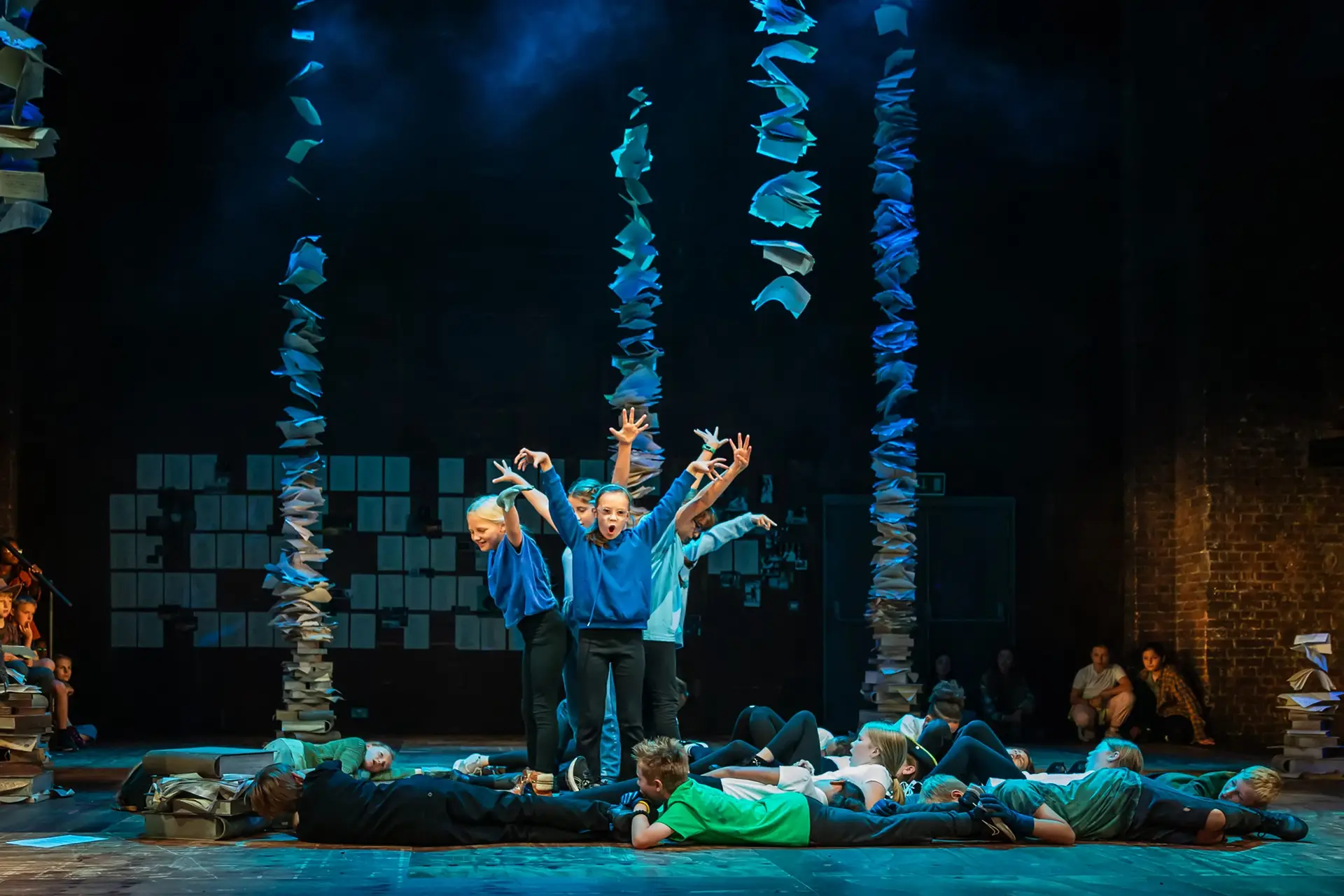Titchfield Festival Theatre (TFT) is a charity-run amateur dramatics theatre based in Hampshire, operated entirely by volunteer enthusiasts. The theatre is a well-established and prolific outfit, has received a number of regional accolades and is hugely popular with the local community, staging up to 22 productions per year.
It has a particular focus on Shakespeare, who is rumoured to have been based in the area for some of his formative years, and puts on an annual ‘Bard at the Barn’ season over the summer at one of its two venues, a 15th century barn near Titchfield Abbey.
In addition to the ‘Great Barn’ site, which functions as a wedding venue outside of Shakespeare season (generating substantial unrestricted income for the charity), TFT stages productions in a converted 1960s warehouse a couple of miles down the road. This site, however, is not very energy-inefficient and the public frequently complain about the cold in winter months. The site is also lacking in terms of use of space and degree of accessibility. In response, the charity trustees developed a plan to refurbish and modernise the site. However, given that all prior surpluses were reinvested into productions, it had insufficient reserves to finance this. That’s where social investment came in.
TFT needed in excess of £400,000 to:
- purchase a new, better insulated roof for the warehouse site, complete with solar panels
- purchase a more energy efficient bio-mass boiler and grey-water recycling system
- make interior refurbishments to add better quality facilities for both audiences and performers at the site.
Significantly, the solar panels and biomass boiler will allow the charity to benefit from the government’s feed-in-tariff (FIT) and renewable heat incentive (RHI) schemes, meaning that excess energy can be sold back to the national grid. Not only will this more efficient technology cut-down utility bills – it could also generate a net income for the theatre.
“TFT can demonstrate a strong creative and curatorial vision that can draw upon a large network of technical expertise.”
TFT had managed to raise a substantial amount for the project from social lenders Unity Trust Bank, secured on the Great Barn site, but faced a funding shortfall of £150,000, for which it approached the Arts Impact Fund.
In the course of its financial due diligence, the Arts Impact Fund assessed TFT’s income and expenditure, in terms of past performance and future projections. Important areas to consider were the assumptions behind its FIT & RHI calculations, the likelihood of achieving planned revenue growth from delivering a greater amount of weddings at the Great Barn and the charity’s relatively lean cost base. In short, the management team needed to demonstrate an ability to repay the loan and explain how it would mitigate its business risks.
Alongside the finances, the Arts Impact Fund was also interested in TFT’s social impact. In addition to being a pillar of the local community and encouraging active citizenship through volunteering, TFT also uses theatre as an educational tool for young people. Its 2016 schools production, When the King Came to Town, will engage local students from Years 4-6 in the history of the Battle of Agincourt and the local area. It will be entirely free for schools, being subsidised by regular ticket sales.
Complementing this work is a more proactive outreach programme, involving TFT partnering with local theatre production companies to go into schools and Young Offenders Institutes to deliver programmes through drama aiming to discourage misuse of drugs and alcohol and reoffending.
In terms of artistic impact, the charity can demonstrate a strong creative and curatorial vision that could draw upon a large network of technical expertise (for instance, in directing, script-writing and theatre in Education) when required. Its growing attendance figures and recognition in regional theatre awards served as a guide to the quality of its artistic output.
The Arts Impact Fund was able to offer TFT an unsecured loan of £150,000 to be repaid over four years. Beyond repayment of the loan, the charity will be expected to make headway in terms of more rigorously measuring the impact of its theatre in education project and increasing the amount of post-performance feedback it collects from its audience. Management will have to update the fund at least every quarter on progress being made in this regard.
This example shows that social investment can be used by a wide range of organisations – it is not just preserve of large social enterprises with a team of paid senior managers. Over time, the Arts Impact Fund hopes to fund a wide range of organisations, to encourage more diversity and promote innovative thinking in the arts space.





